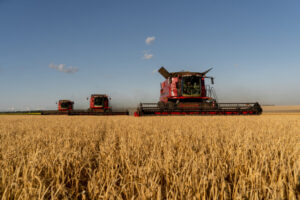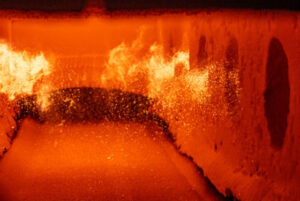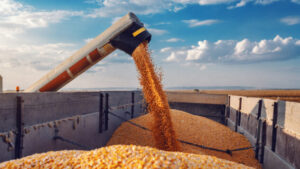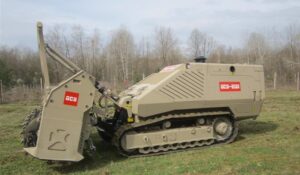
Ukraine is a strategic partner of the EU and the world. While a significant part of the world’s land is becoming unsuitable for agriculture due to climate change and soil degradation, in Ukraine, with a total area of 60.35 million hectares, 42.73 million hectares or 70.8% of the territory is already used in agricultural production, according to SEEDS.
Dmytro Ustavytskyi, co-founder of the logistics company NIDERA AGRO, an expert in international logistics and innovative solutions, and industry leader of the NGO Svit.UA, writes about this in a blog on the Svit.UA website.
“Despite the realities of the war, grain exports from Ukraine are crucial for the food security of the world. This month, the EU is presenting the updated Common Agricultural Policy of the European Union, which will be adopted in 2028. Currently, it is being discussed that trade preferences introduced in 2022 due to the war should be extended until 2027, as the war continues.
According to the Ministry of Agriculture, in 2024, exports of agricultural products brought in $24.6 billion, which is 59% of the country’s total exports. Ukrainian farmers managed to increase exports by 12.5% compared to 2023. Sales of grains (+1.1 billion USD) and oilseeds (+0.5 billion USD) increased the most,” says Dmytro Ustavytskyi.
In his opinion, logistics in the agricultural sector of Ukraine plays a crucial role in ensuring food security both domestically and in foreign markets.
“Logistics covers the entire supply chain – from the delivery of seeds, fertilizers and machinery to producers to the transportation of crops to storage, processing, domestic markets and export terminals. Efficient logistics helps to minimize crop losses, preserve its quality and ensure competitive prices,” adds the expert on international logistics and innovative solutions.
Challenges of war: infrastructure losses and risks
Russia’s full-scale invasion has shown the critical importance of stable logistics. The destruction of transport infrastructure, blocking of sea routes, destruction of elevators and mining of agricultural land have complicated agricultural processes. However, Ukraine was able to adapt by expanding export routes through the Danube ports and alternative land corridors to the EU.
Export potential: opportunities and constraints
The European Union remains Ukraine’s main trading partner. Ukrainian grain helps to reduce food inflation in the EU.
“However, neighboring countries view the Ukrainian agricultural sector not only as a partner but also as a competitor, which makes it difficult to enter new European markets. Therefore, the issue of extending trade benefits for exporters and solving the problems of blocking borders is a priority.
Ukraine has significant export potential because of its high quality products. For example, the President of the Ukrainian Grain Association (UGA) conducted an audit in the EU and received positive feedback on the quality of Ukrainian grain, which is recognized as one of the best in Europe,” recalls Dmytro Ustavytskyi.
How medium-sized farmers can enter EU markets
“Ukrainian farmers now have the opportunity to sell grain to the EU without customs barriers. For example, a farmer with 500 hectares of land can supply products directly to processors in Italy. And now Ukrainian grain can reach San Martino in Italy in just 2 weeks!
Currently, 90% of Ukrainian grain (wheat and corn) is supplied to Italy, gradually displacing Russian products from the local market. This demonstrates the effectiveness of Ukrainian logistics, which is gradually integrating into the European infrastructure,” emphasizes the co-founder of the logistics company NIDERA AGRO.
Development of logistics infrastructure: the key to competitiveness
According to the expert, his team has now built a complete logistics chain for farmers:
“Today, farmers have a choice – to sell grain on the domestic market or to export on more favorable terms. Transparency of prices on trading platforms allows us to plan sales more efficiently, which reduces logistics costs,” adds Dmytro Ustavytskyi.
Financial opportunities for exporters
According to the expert in international logistics and innovative solutions, farmers have already learned how to work with foreign exchange contracts, which simplifies export operations. Banks have simplified the mechanism for servicing foreign currency accounts, which helps to avoid exchange rate risks.
“However, exports require certification and professional support. We help small producers to go through this process without risks by providing solutions for exporting consignments of 1,800 tons or more. Quality assurance is a key factor in successful exports,” says Dmytro Ustavytskyi.
Trade strategies and training for farmers
One of the common mistakes, the expert believes, is selling grain immediately after harvest, when prices are lowest. In his opinion, it is more profitable to store products and analyze the market to sell at the most favorable time.
In addition, further improvement of agro-logistics is impossible without investment in:
“At NGO Svit.UA, we are raising these issues and will be organizing meetings with the Ministry of Agrarian Policy to discuss the possibilities of state support for small and medium-sized farmers in entering international markets.
In times of war, export support for small and medium-sized farmers is becoming a strategically important area for food security and economic development.
Ukrainian producers remain important partners for the EU, so there must be a certain trade culture, because the main requirement of European buyers is honesty in terms of quality and quantity of products,” adds Dmytro Ustavytskyi.
In his opinion, Ukraine has unique opportunities to integrate into the European market even despite the challenges of war. Investments in logistics, digital solutions and international cooperation will help make this process efficient and profitable for Ukrainian farmers.

Chinese short video-sharing service operator TikTok plans to invest $8.8 billion in building data centers in Thailand over five years, TikTok’s Vice President of Public Policy Helena Lersch said during an event in Bangkok on Friday.
In January, Thailand’s Board of Investment announced TikTok’s plans to invest $3.8 billion in the country. It is unclear whether this amount is included in the total amount of investments announced by Lersh. The number of TikTok users in Thailand is over 50 million.

In 2024, Central Mining and Processing Plant (CMP, Kryvyi Rih, Dnipro region), a part of Metinvest Group, implemented a number of energy efficiency projects and increased the percentage of natural gas substitution with biofuels from 50% to 53%.
According to the company, the pelletizing plant ended the year and started 2025 with high productivity and operational improvements based on the results of last year’s work.
It is specified that the high rating of the plant’s performance was ensured, in particular, by the implementation of the production program. In 2024, the plant’s utilization rate remained at 100%, and the shop operated at its maximum capacity of up to 298 tons of pellets per hour. In total, the plant produced about 2.2 million tons of high-quality products last year. The mill ships its pellets to domestic customers and to the European market.
During the year, the pelletizing plant implemented a number of investment projects to ensure stable production. In March and November, the OK-324 roasting machine complex was overhauled twice.
The specialists restored the refractory masonry of the kiln and repaired six nozzles. A smoke exhauster shaft rotator was installed, which significantly reduced its operating time during scheduled maintenance at the plant. The installation of the mechanism reduced energy consumption and increased the reliability of the equipment. To reduce the environmental impact and improve energy efficiency, two drip traps on two smoke exhausters were partially replaced and the flues on the other two smoke exhausters were repaired. All this ensures the reliability of the entire equipment complex.
The key areas of the plant’s operation that the team focuses on are specific costs, such as gas and electricity, as well as such expenditure items as biofuel, bentonite, etc. As a result of systematic work, the plant implemented a number of operational measures last year. For example, the installation of a shaft rotation mechanism for the D-3 smoke exhauster and the automation of closing the D-6 smoke exhauster guides contributed to energy savings.
Andrey Zhilkinsky, head of the pelletizing plant at Central GOK, noted that timely repairs, along with equipment modernization and automation of certain processes, allow the company to maintain a stable production rhythm, meeting all the requirements for the quality of iron ore and the volume of customer orders.
“On the other hand, time requires us to look even more closely at all processes and focus on developing measures that would save our key cost items, contributing to the sustainability of the plant. Therefore, the plant’s team continues to develop and implement innovative solutions and rational ideas to optimize the use of resources in the production process and improve production efficiency,” summarized the plant’s head.
Central GOK is one of the five largest producers of mining raw materials in Ukraine. It specializes in the extraction and production of iron ore concentrate and pellets.
CGOK is a part of Metinvest Group, whose major shareholders are System Capital Management (SCM, Donetsk) (71.24%) and Smart Holding Group (23.76%). Metinvest Group’s management company is Metinvest Holding LLC.

During its operation, the Ukrainian sea corridor has transported 106 million tons of cargo, of which almost 70 million tons is grain, the press service of the Ministry of Communities and Territories Development (MDT) reports.
“These are 4,000 vessels that delivered our agricultural products to the countries of Africa, Asia, and Europe,” said Oleksiy Kuleba, Deputy Prime Minister for Recovery and Minister of Community and Territorial Development.
The Ministry reminded that on March 1, Russia launched a missile attack on the port infrastructure in Odesa. Two civilian port workers were injured in the attack.
The attack damaged two civilian vessels: the SUPER SARKAS, a Sierra Leonean-flagged bulk carrier loaded with more than 21,000 tons of corn and soybeans for export. In addition, the container ship MSC LEVANTE F flying the flag of Panama, owned by a leading European company, was damaged. In total, this is the 29th civilian vessel to be damaged as a result of Russian attacks, the ministry added.

In 2025, the Swiss-German company Global Clearance Solutions (GCS), one of the world’s leading manufacturers of robotic demining systems, will produce 26 more GCS-200 mechanized demining vehicles for Ukraine in addition to the 62 already operating in different regions of the country, the press service of the Ministry of Defense of Ukraine reports.
“Currently, 62 GCS-200 mechanized demining vehicles are operating in different regions of Ukraine. This year, their fleet is to be replenished with 26 more units,” the Ministry of Defense said in a statement on its website on Monday.
It is reported that the project is funded by international donors, including the governments of Germany, Switzerland, Canada, the United States, the United Kingdom, Lithuania, and through the United24 platform.
It is noted that representatives of the Ministry of Defense, at the invitation of the management of the Ukrainian branch of GCS, visited the production facilities of the company in Germany, which develops and tests GCS demining machines.
“GCS is one of the world’s leading manufacturers of robotic demining systems, whose equipment is used by the Armed Forces of Ukraine, the State Service of Ukraine for Emergency Situations, the State Emergency Service and the National Police. These are reliable, modern systems that have proven their effectiveness in the field. The company provides a full range of services to the Security and Defense Forces, including training and technical support for its vehicles,” said Yevhen Zubarevsky, Head of the Mine Action Organization Department, Deputy Head of the Mine Action Department of the Main Directorate of Mine Action, Civil Protection and Environmental Safety.
The GCS-200 unmanned multi-purpose platform, samples of which were handed over by our partners to a military unit of the Ukrainian Armed Forces Support Command last year, has a number of modifications. As a tracked vehicle, it is very maneuverable and can turn on the spot with a minimum radius of about four meters. The use of mechanized demining machines reduces the risks for the sapper and speeds up the process of land clearance.

Bitcoin and other digital currencies will be included in the US Crypto Strategic Reserve, US President Donald Trump has said.
“I will make the United States the crypto capital of the world,” he wrote on his social network Truth Social on Sunday.
Trump issued an executive order on digital assets, which ordered him to work on the creation of such a reserve. Along with bitcoin, it will include such cryptocurrencies as Ethereum, XRP, Solana, and Cardano.
In this case, bitcoin and ether will become the “heart of the reserve”.
Bitcoin fell by 2.1% to $92,358 thousand by 10:03 a.m. on Monday, according to Coindesk. After Trump’s statements the day before, the world’s most popular cryptocurrency rose in price by more than 10%. Over the past year, its value has jumped by 36.4%.